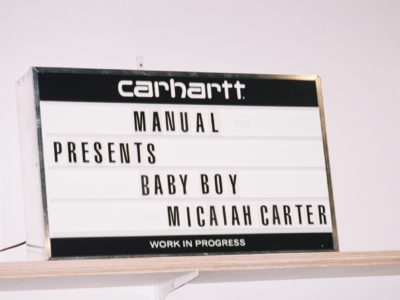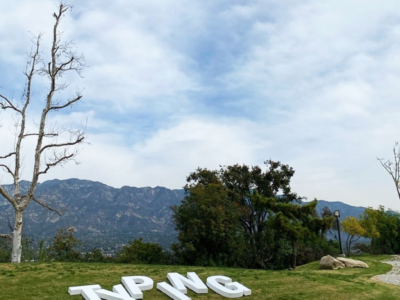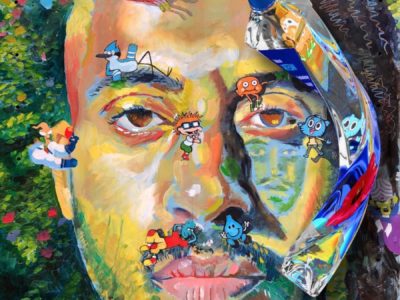
Q&A with Photographer, Mark Oblow
Q&A with Photographer, Mark Oblow
BY: MICHAEL JOERRES | LEAD PHOTO BY AITOR MOLINA | LEAD COURTESY OF TAYLOR DUNFEE
If you haven’t heard of Mark Oblow, just go to your local skate park and ask around. Since moving to Venice from his native Hawaii in the early 90s, Mark has influenced skate culture immeasurably and there’s no greater authority on the subject. Mark has gone from being a sponsored rider to photographing the likes of David Beckham and Katy Perry. Since blossoming as a creative director and photographer, Mark has added several interdisciplinary aspects to his art practice, finding more and more ways to express himself off of the board. Following the launch of Mark’s most recent collaboration with RVCA, we caught up with the legend to talk about skating and making art for the right reasons.







Can you tell me a bit about your background and how you came to be known as an artist?
I was born and raised in Hawaii and I took to surfing first and then quickly changed to skateboarding. Skateboarding was basically everything for me from that point on. Back in the day, we didn’t have anything, so we created everything ourselves. We were like, let’s do clothing, let’s do shoes, all of these different things. And no one was ever there to say no, you know? I started doing drawings on decks and that sort of stuff. I graduated in 1990 and moved to Venice to skate; at the time I was riding for Vision. I then started my own company and doing graphics. From there, I really switched into managing riders and then became a creative director and a photographer. Things were financially unbelievable and I was traveling all around the world, but the art was kind of ripped away from me. All of a sudden, it turned into shooting celebrities. At some point, I decided to stop all of that and just focus on doing my art to see where it took me. What I was creating wasn’t making me happy and wasn’t making my heart pound. I don’t want to create for the wrong reasons, although getting paid is great!
How did you first begin collaborating with RVCA?
I’ve known Pat from RVCA forever; he was sitting in my garage one day and was like, “Why don’t you do stuff with RVCA?” It’s been over two and a half years now; it’s crazy because I just got another deal with them and I’ll be an old, old man with them, you know? It’s a cool thing.
You talk about making art for the right reasons. Is there something about the RVCA brand that drew you to them immediately?
Yeah, truly because of Pat. I’ve been in the industry a long time. I’ve known a lot of people. I’ve known a lot of brand. Pat is so in tune with his people, his writers, and his creatives; he allows them to be them. Like for myself, I don’t have to conform in any way. They really give you a good sense of freedom and they support you. I’ll back them forever; I’ll back Pat. It’s just like the most magical, ideal, loving but respectful situation. If it wasn’t for RVCA, I wouldn’t be a global artist. I’ve had my dark times in my life, but this is where I’m at; once again, if it weren’t for a program like this, I don’t know where I’d be.
Tell me more about the RVCA x Ron Robinson launch.
Basically, I found an ink that I could print on a RVCA red-stitch t-shirt. I did some tests, found some ink, and came up with the idea to do some one-off shirts. It was a really cool thing because the shirts did well and I was able to share the complete line with everyone. Also, we’re not just in a retail store looking at something on the rack. You’re seeing a shirt, and the guy is standing there making it for you.
I’m interested in the role that art plays in skate culture in particular and how you were able to marry the two…
I think that skating is definitely a heavily art-influenced sport—if you even want to call it that. I think with skateboarding, it’s really about the individual. When you’re skateboarding your tricks, it’s about the way you do them and your style. My friends, like Spike Jones, Jason Lee, or Tommy Guerrero, either went into playing music, directing videos, or making art. It’s just something that’s bred in skating. If you’re a parent and your kid starts to go towards skateboarding, put them in a music class, put them in an art class, and watch how your kid goes. Look at Steve Rocco or Rodney Mullen; there are no NFL players doing that. Skateboarding is a love-hate thing. It’s a painful thing. It’s like a relationship, you’re going to bleed and cry and hurt, and when you finally make that trick it’s every single thing. When you’re doing this trick, everything about the way you dress, to your style, to your shoes, to the way your pants look, to your hair, and the way you make your trick is like your paintbrush.
How do you think skate culture has changed throughout your career?
Five or 10 years ago, no one gave a shit about the older guys. In recent years, those older guys are actually back on top and doing really well. A lot of these older guys are back out and, all of a sudden, you see the difference between a guy who’s been riding a pool his whole life and a little kid who’s able to do every single trick. There’s a difference between being able to do tricks and being able to ride a skateboard; if you don’t look good making a trick, fuck off. You’re not gonna do a trick.You don’t wear pads. You want to push yourself to the furthest point without anything protecting you. It’s a power thing. That’s what keeps the sport so fucking raw, because the youth comes up and they can take the beatings. It’s nothing.
The sport is getting bigger with all the stuff on TV, but there is the small group of kids you see if you go to a park who are in it for all the right reasons. They still have those same values and they still burn that same fire. And that’s what you can see. For me, I was literally just in the darkest spot of my life and all of a sudden this kid from Hawaii comes to town and is like, “come to the skate park, just come.” And instantly I went there and started watching the kids and it was like, holy shit, this is what I’m supposed to do. When I was doing all the creative direction and the brand and all that, that’s what I missed. I wasn’t around the team; I wasn’t around my guys.
What’s next for you?
I’m working on a skateboard brand called Together Together. We’re trying to help out the people and trying to push the whole thing back on our beliefs and share that with kids and people. I’m also working on doing a show that hopefully will be in Japan with old Polaroids that I’ve painted on. I’m taking other photos and kind of collaging them onto these Polaroids. Hopefully it will launch first in Japan, then there are talks about Europe and New York.
See Mark’s recent RVCA capsule line below.









